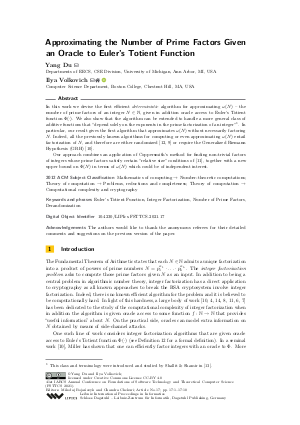LIPIcs.FSTTCS.2021.17.pdf
- Filesize: 0.72 MB
- 10 pages

 Creative Commons Attribution 4.0 International license
Creative Commons Attribution 4.0 International license




Feedback for Dagstuhl Publishing